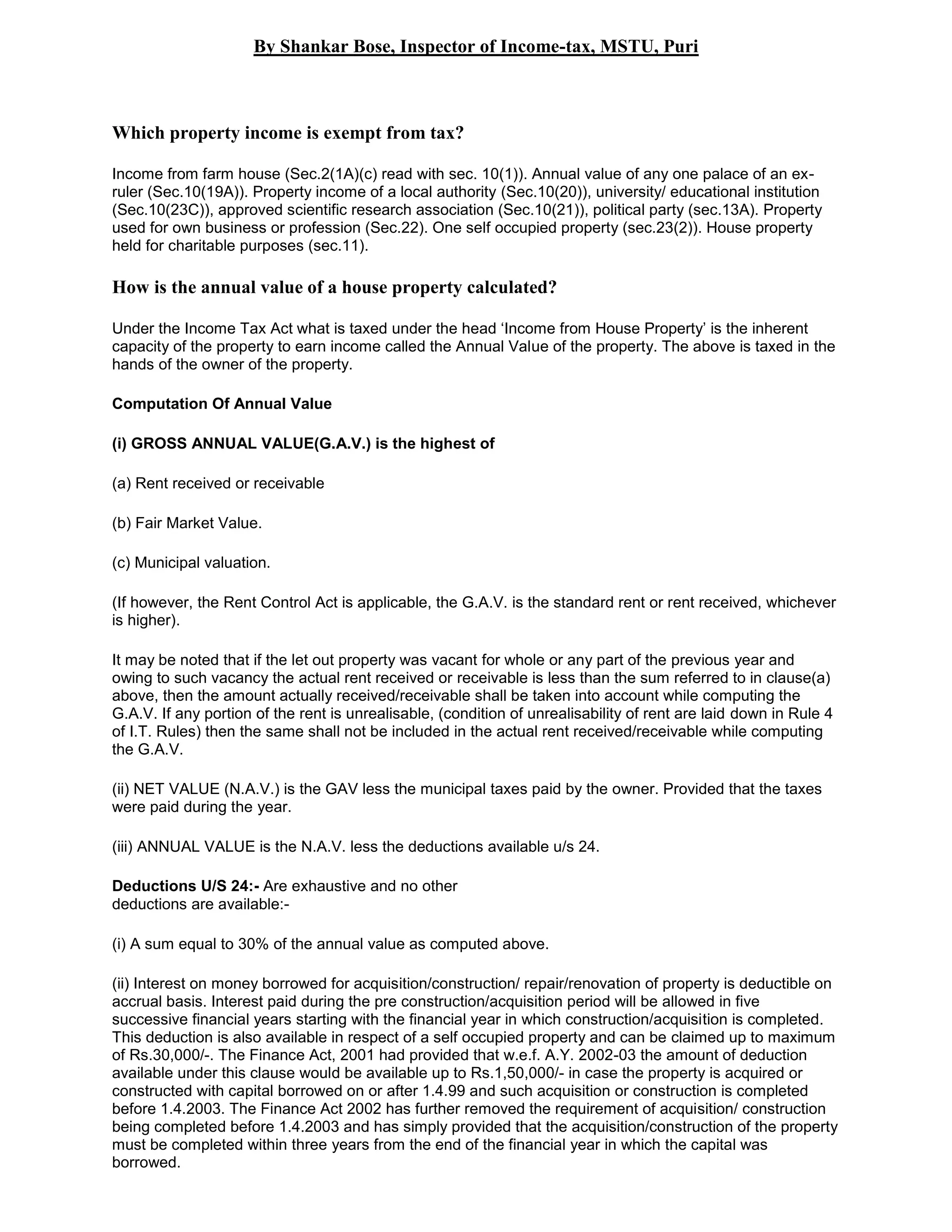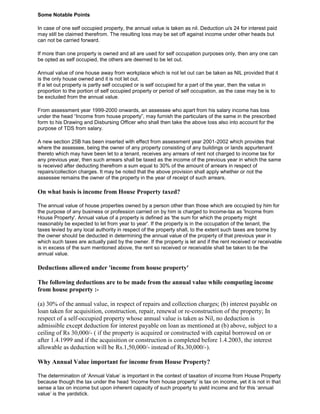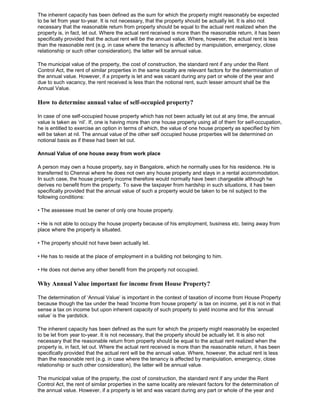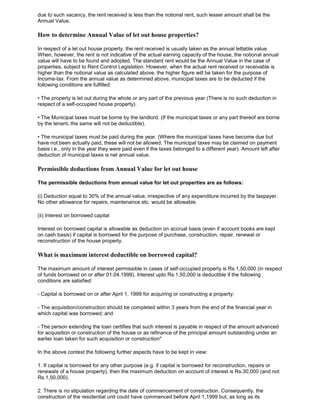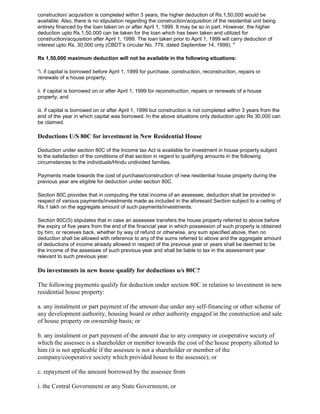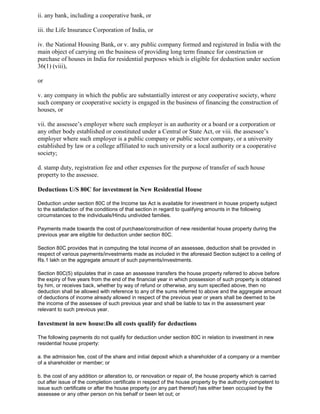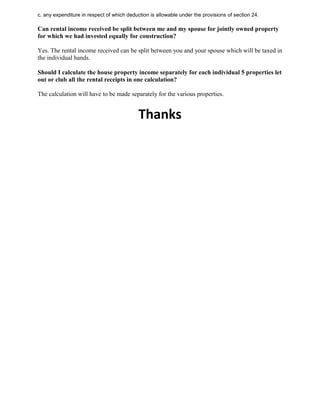The document discusses various aspects of calculating income from house property for tax purposes in India. It explains that the annual value of a house, which is the inherent capacity of the property to earn income, is taxed. It provides details on how to compute the gross annual value, net annual value, and annual value by making deductions. Certain property incomes are exempt from tax. The determination of annual value is important for taxation of income from house property.
